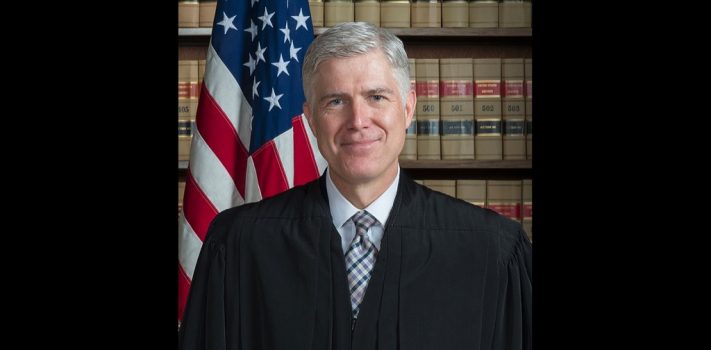“Since March 2020, we may have experienced the greatest intrusions on civil liberties in the peacetime history of this country. Executive officials across the country issued emergency decrees on a breathtaking scale. Governors and local leaders imposed lockdown orders forcing people to remain in their homes They shuttered businesses and schools public and private. They closed churches even as they allowed casinos and other favored businesses to carry on. They threatened violators not just with civil penalties but with criminal sanctions too. They surveilled church parking lots, recorded license plates, and issued notices warning that attendance at even outdoor services satisfying all state social-distancing and hygiene requirements could amount to criminal conduct. They divided cities and neighborhoods into color-coded zones, forced individuals to fight for their freedoms in court on emergency timetables, and then changed their color-coded schemes when defeat in court seemed imminent.
Federal executive officials entered the act too. Not just with emergency immigration decrees. They deployed a public-health agency to regulate landlord-tenant relations nationwide. They used a workplace-safety agency to issue a vaccination mandate for most working Americans. They threatened to fire noncompliant employees, and warned that service members who refused to vaccinate might face dishonorable discharge and confinement. Along the way, it seems federal officials may have pressured social-media companies to suppress information about pandemic policies with which they disagreed.
While executive officials issued new emergency decrees at a furious pace, state legislatures and Congress—the bodies normally responsible for adopting our laws—too often fell silent. Courts bound to protect our liberties addressed a few—but hardly all—of the intrusions upon them. In some cases, like this one, courts even allowed themselves to be used to perpetuate emergency public-health decrees for collateral purposes, itself a form of emergency-lawmaking-by-litigation.
Doubtless, many lessons can be learned from this chapter in our history, and hopefully serious efforts will be made to study it. One lesson might be this: Fear and the desire for safety are powerful forces. They can lead to a clamor for action—almost any action—as long as someone does something to address a perceived threat. A leader or an expert who claims he can fix everything, if only we do exactly as he says, can prove an irresistible force. We do not need to confront a bayonet, we need only a nudge, before we willingly abandon the nicety of requiring laws to be adopted by our legislative representatives and accept rule by decree.
Along the way, we will accede to the loss of many cherished civil liberties—the right to worship freely, to debate public policy without censorship, to gather with friends and family, or simply to leave our homes. We may even cheer on those who ask us to disregard our normal lawmaking processes and forfeit our personal freedoms. Of course, this is no new story. Even the ancients warned that democracies can degenerate toward autocracy in the face of fear.
But maybe we have learned another lesson too. The concentration of power in the hands of so few may be efficient and sometimes popular. But it does not tend toward sound government. However wise one person or his advisors may be, that is no substitute for the wisdom of the whole of the American people that can be tapped in the legislative process. Decisions produced by those who indulge no criticism are rarely as good as those produced after robust and uncensored debate. Decisions announced on the fly are rarely as wise as those that come after careful deliberation. Decisions made by a few often yield unintended consequences that may be avoided when more are consulted. Autocracies have always suffered these defects. Maybe, hopefully, we have relearned these lessons too.” – Supreme Court Justice Neil Gorsuch, in his statement included in ARIZONA, ET AL. v. ALEJANDRO MAYORKAS, SECRETARY OF HOMELAND SECURITY










